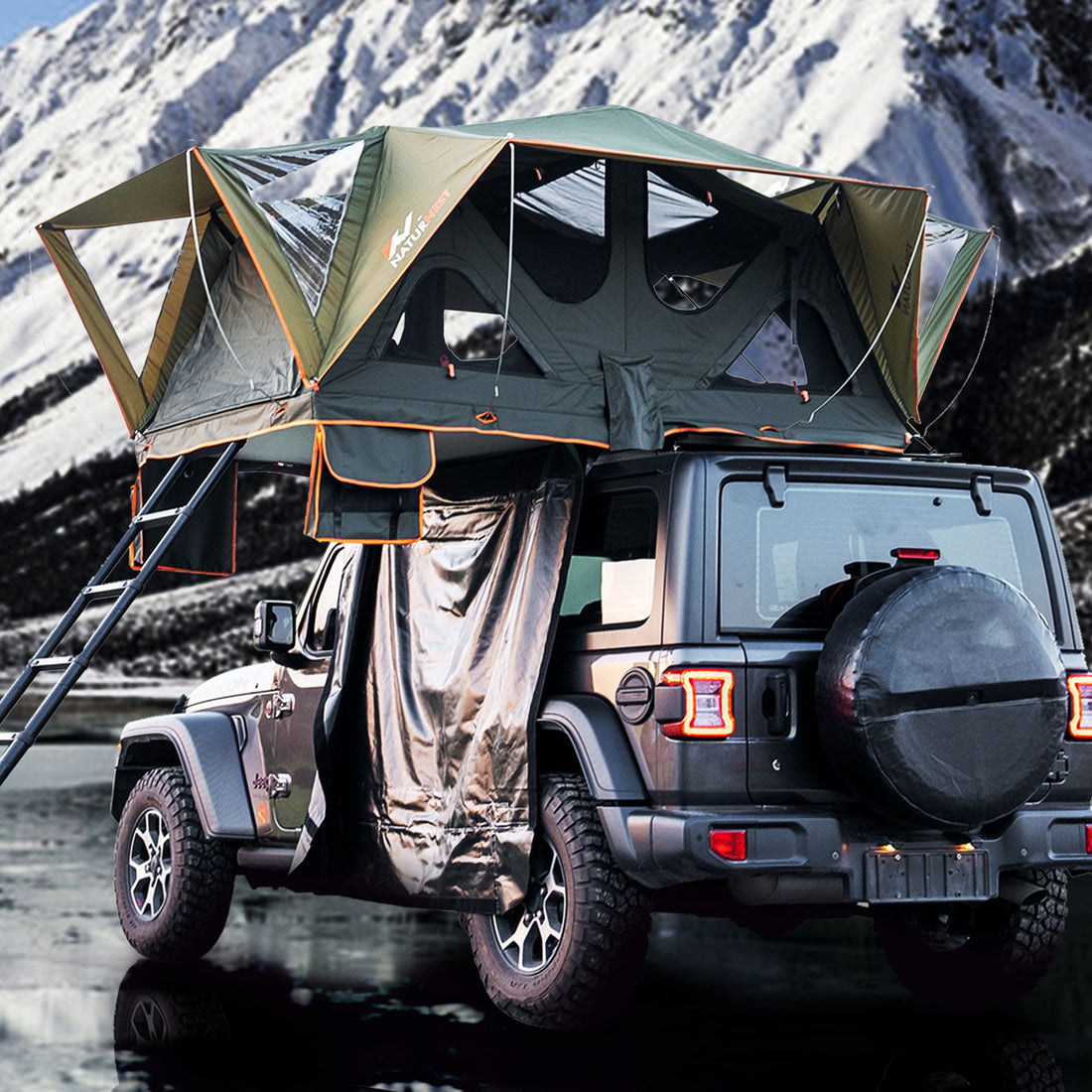Winter camping is a dream adventure for many outdoor enthusiasts, but the cold weather demands extra preparation and skills. To help you enjoy the warmth and comfort of your tent in freezing conditions, Bamatent has put together this practical guide for winter camping. From choosing the right tent to layering your clothing, this article will help you tackle the challenges of winter camping.

Choose a Tent Designed for Winter Camping
When winter camping, choosing the right tent is crucial. Standard tents may not handle the cold or strong winds effectively, but Bamatent's hard-shell and all-season tents are specifically designed to provide superior wind resistance and snow load capabilities. These tents are made with high-density waterproof materials and reinforced frames, ensuring your shelter stays secure in heavy snow and strong winds, keeping you safe and warm inside. Choose a winter-specific tent that can withstand the elements, providing both protection and comfort.

Prepare Winter-Ready Sleeping Bags and Pads
Sleeping bags and pads are vital for staying warm during winter camping. Choose sleeping bags rated for cold temperatures and tailored for winter use. Down sleeping bags, for example, offer excellent warmth-to-weight ratios. A good sleeping pad is equally important as it acts as an insulator against the cold ground. Opt for a high-quality, insulated sleeping pad, or use a foam pad in addition to your regular sleeping pad to enhance heat retention and insulation.
Layer Your Clothing to Block the Cold Wind
Clothing is key to staying warm in winter camping. The "layering" technique is the best approach to regulate your body temperature. Start with a moisture-wicking base layer that keeps sweat off your skin. For the middle layer, choose insulating materials like wool or down that trap warmth, and for the outer layer, wear a windproof, waterproof jacket to shield against snow and wind. Layering allows you to adjust your clothing based on your activity level, ensuring you stay warm without overheating.
Use Camping Stoves for Extra Warmth
On cold winter nights, a portable camping stove can be your best friend. Hot drinks and meals not only enhance your camping experience but also provide much-needed warmth. When using a stove in or near your tent, make sure the tent is properly ventilated to avoid carbon monoxide buildup. For safety, it’s best to cook outside the tent, near the entrance, and bring the hot food and drinks inside to enjoy.
Keep Your Tent Dry and Warm
Moisture is a major enemy of winter camping. Wet gear, sleeping bags, or the tent floor can sap your body heat and make you uncomfortable. To keep your tent dry, make sure there is no water or snow leakage, especially at the seams or the bottom of the tent. Use a waterproof groundsheet beneath your tent to protect the floor from moisture. Additionally, hang wet clothes outside the tent to dry, maintaining a dry environment inside.
Hot Water Bottles: A Winter Camping Secret Weapon
Hot water bottles are a great little addition to your winter camping setup. You can fill a hot water bottle and place it inside your sleeping bag to quickly warm it up, ensuring a cozy start to the night. When you're out and about during the day, you can keep a hot water bottle inside your jacket to help keep your body temperature up. These portable heat sources are a great way to maintain warmth in cold conditions.
Choose the Right Campsite
Choosing the right campsite is especially important during winter camping. Avoid camping in areas where snow accumulation is heavy or in wind-exposed spots that could make the tent unstable. Opt for a site with natural wind protection, such as near trees or rocks, which can act as a barrier against strong winds. Ensure the ground is level to prevent snow from pooling or freezing, causing additional discomfort.
Maintain Energy and Warmth with Proper Nutrition
In winter, your body needs more energy to maintain warmth. Bring high-calorie foods like nuts, chocolate, and dried fruits to help fuel your body and keep your energy up. Hot drinks, like tea or soup, are also great for warming you from the inside out and can provide much-needed comfort on a cold winter’s night.
Winter Camping Safety Measures
Winter weather can be unpredictable, so it's important to be prepared. Make sure your tent is securely anchored with enough stakes and guy lines to withstand strong winds. Adding extra windbreaks around your tent can provide additional protection from gusts. Always check weather forecasts to avoid camping in extreme conditions, and be ready to adjust your plans if necessary.
Conclusion: A Warm Winter Camping Adventure
Winter camping is not just a challenge; it’s a chance to experience the beauty and tranquility of nature in its most serene form. With the right preparation and techniques, you can enjoy a warm and comfortable camping experience, even in freezing temperatures. Choose a tent designed for winter, plan your gear carefully, and keep yourself warm and dry—Bamatent will be your trusted companion for all your winter adventures.

